
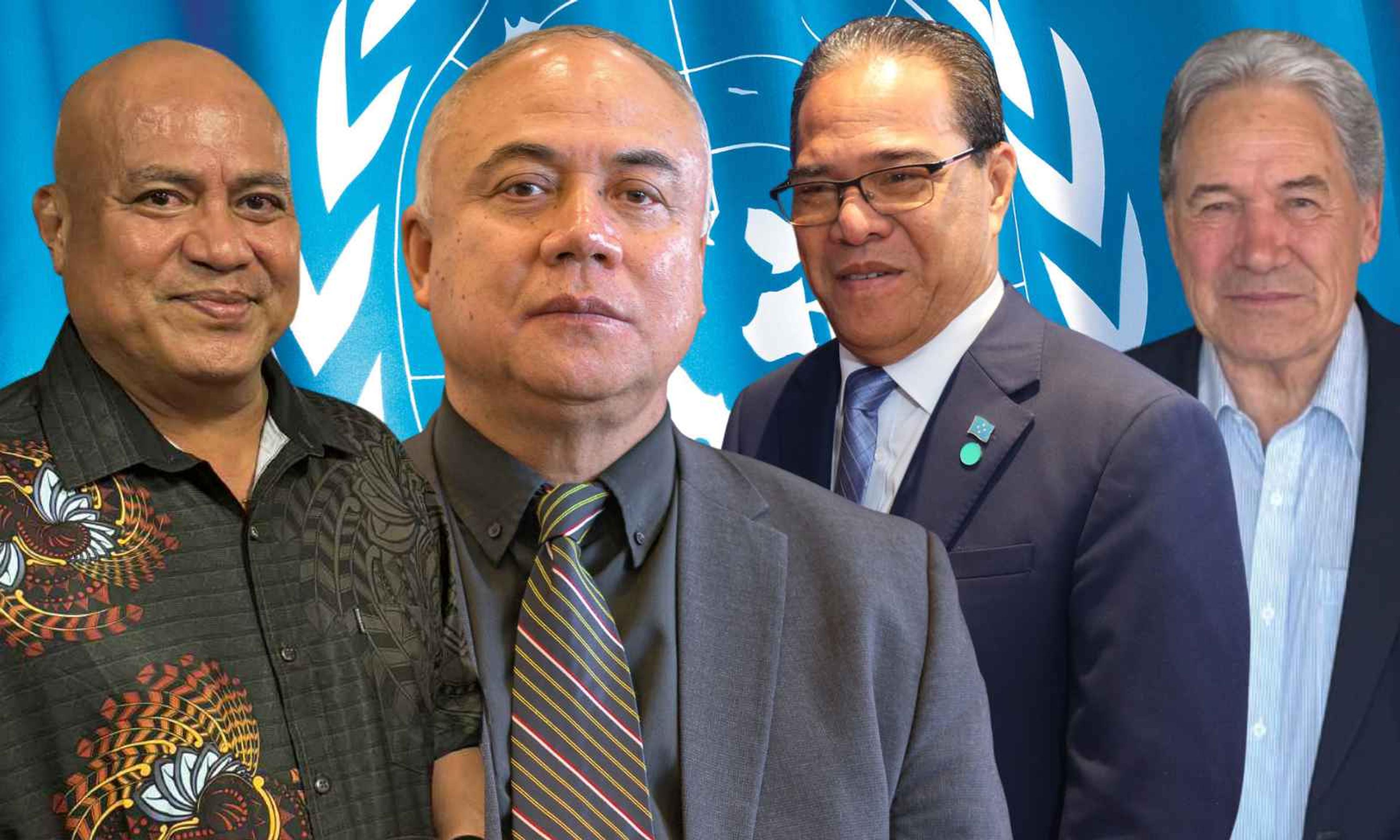
(left to right) Prime Minister of Tuvalu Feleti Teo, Prime Minister of Tonga Dr 'Aisake Eke, President of the Federated States of Micronesia Wesley Simina and New Zealand Foreign Affairs Minister Vaovasamanaia Winston Peters.
Photo/Supplied
Pacific leaders push climate action, gender equality and ocean protection at UNGA80
From Tuvalu’s plea on climate loss and damage to Fiji’s “Ocean of Peace” vision and Micronesia’s stand on methane and high seas protection, Pacific leaders are shaping the 80th UN General Assembly.


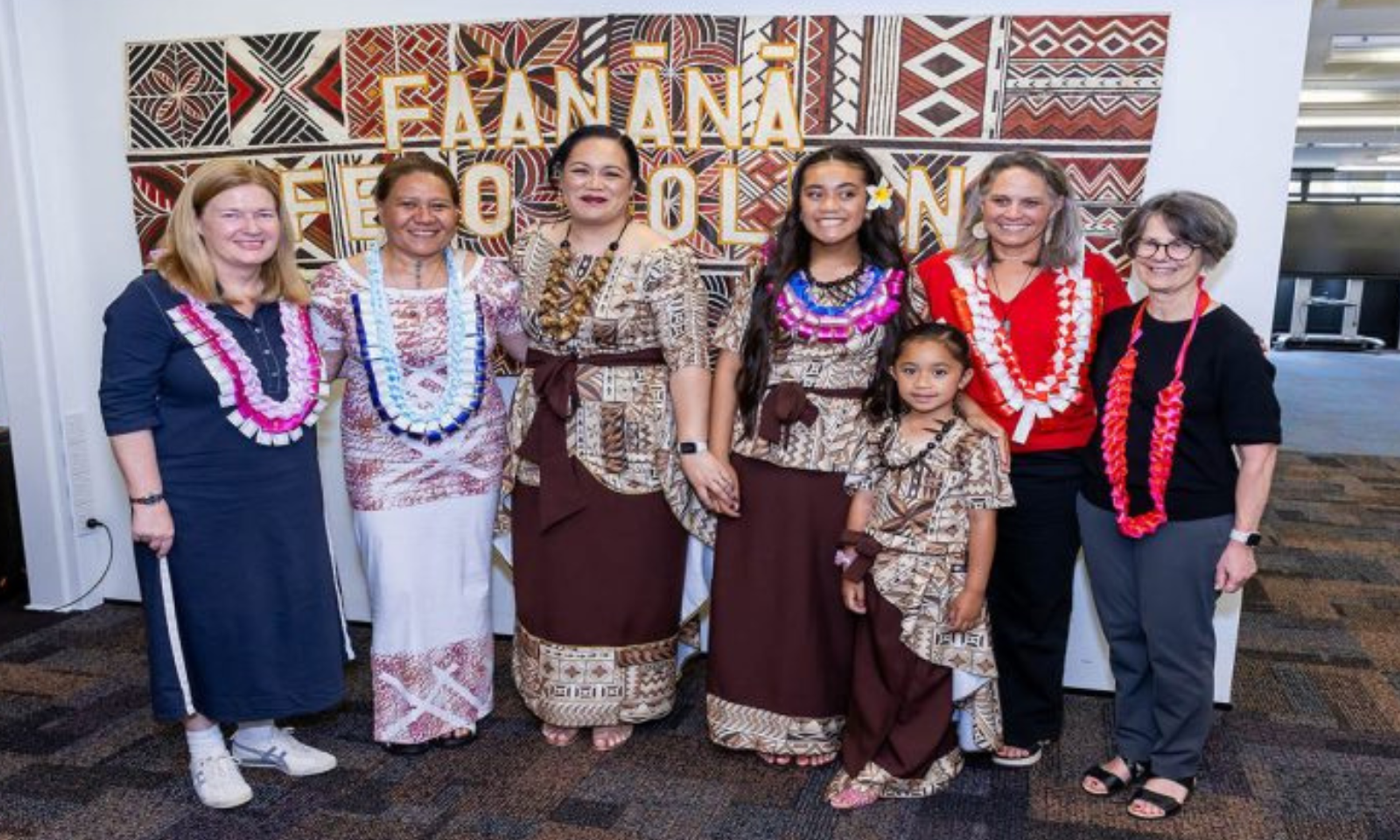

Law expert: US boat strike controversy a lesson for the Pacific
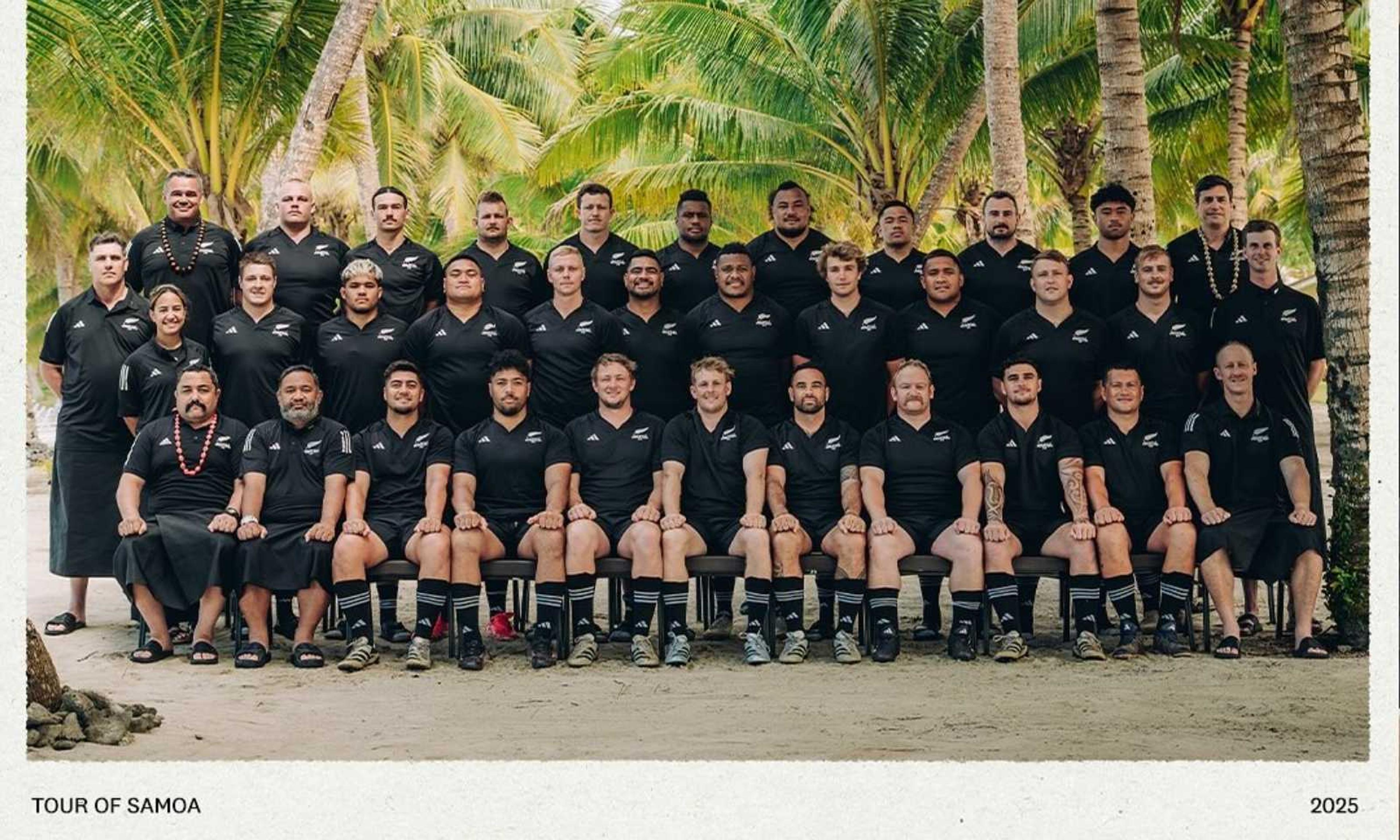
Heartland XV coach reflects on emotional return to Sāmoa


Jai Opetaia drops German in brutal KO, keeps titles and calls for unification fights


Law expert: US boat strike controversy a lesson for the Pacific

Heartland XV coach reflects on emotional return to Sāmoa
Pacific leaders from more than 10 nations have convened in New York this week, making their mark on the 80th United Nations General Assembly (UNGA).
This year’s theme is “Better together: 80 years and more for peace, development and human rights,” with the conflict in Gaza being one of the hot topics this year.
German diplomat Annalena Baerbock is presiding over this year’s UN General Assembly , overseeing the plenary sessions.
Why is the UNGA so significant, and what role does the Pacific play?
It is the one time every year when every United Nations (UN) member, regardless of population and land size, has an equal voice and a global audience.
For Pacific leaders, it’s one of the few diplomatic stages where small island countries can set the global agenda on issues that are existential for them.
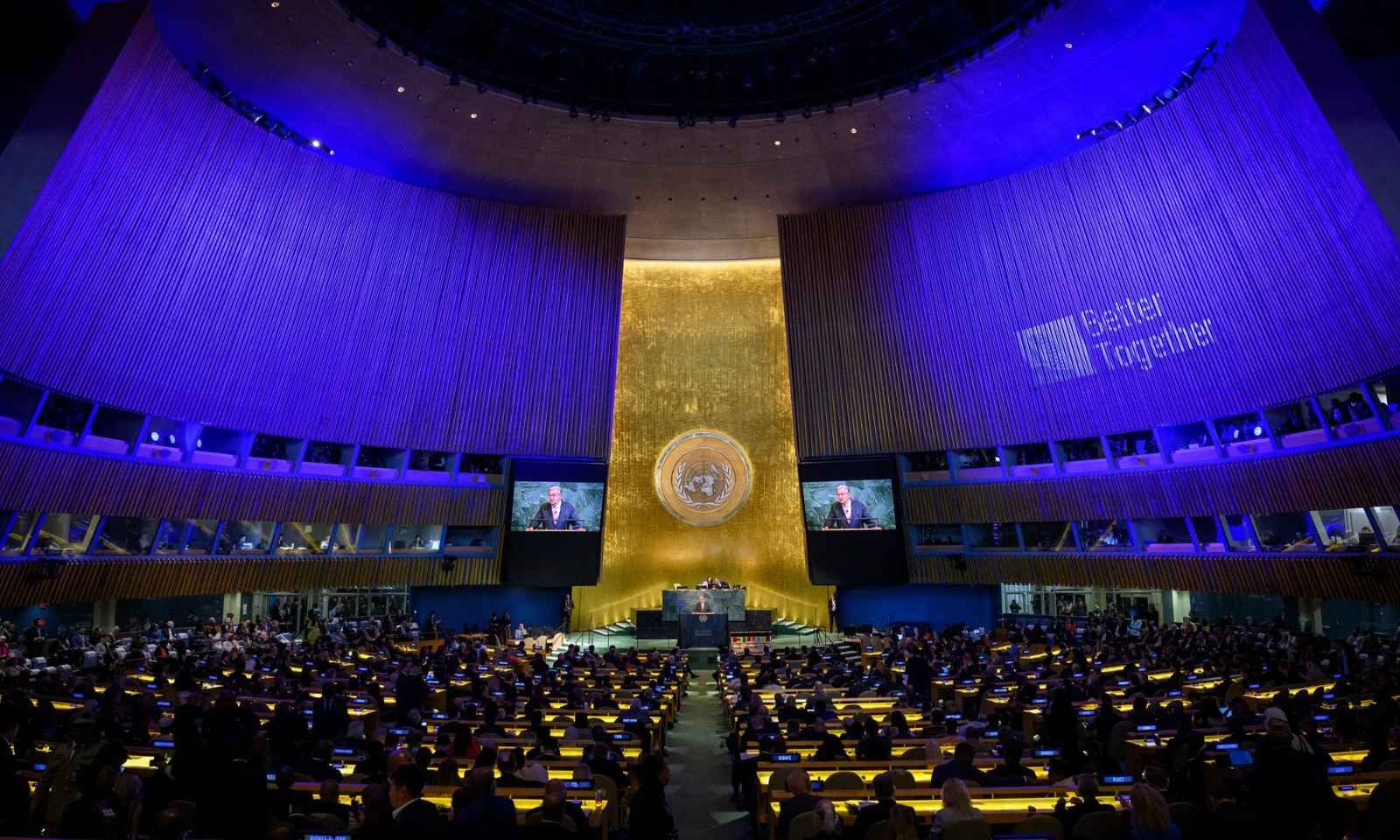
The iconic General Assembly Hall at United Nations Headquarters in New York, where world leaders deliver their annual speeches during the UNGA. Photo/Supplied
The UN currently recognises 14 Pacific island countries as member states, ranging from the smallest, Tuvalu, to the largest, Australia.
Here’s what some Pacific member countries have contributed to the 80th session of the UN General Assembly.
Federated State of Micronesia
The President of the Federated States of Micronesia (FSM), Wesley W. Simina, spoke at two high-level events: the High-Level Solutions Dialogue on Methane and the High Seas Treaty Roundtable Discussion.
The events were hosted by the Bloomberg Philanthropies Global Forum, an annual invitation-only leadership summit created by former New York City Mayor Michael R. Bloomberg.
Simina says voluntary methane pledges are failing and that the problem is not technical but political.
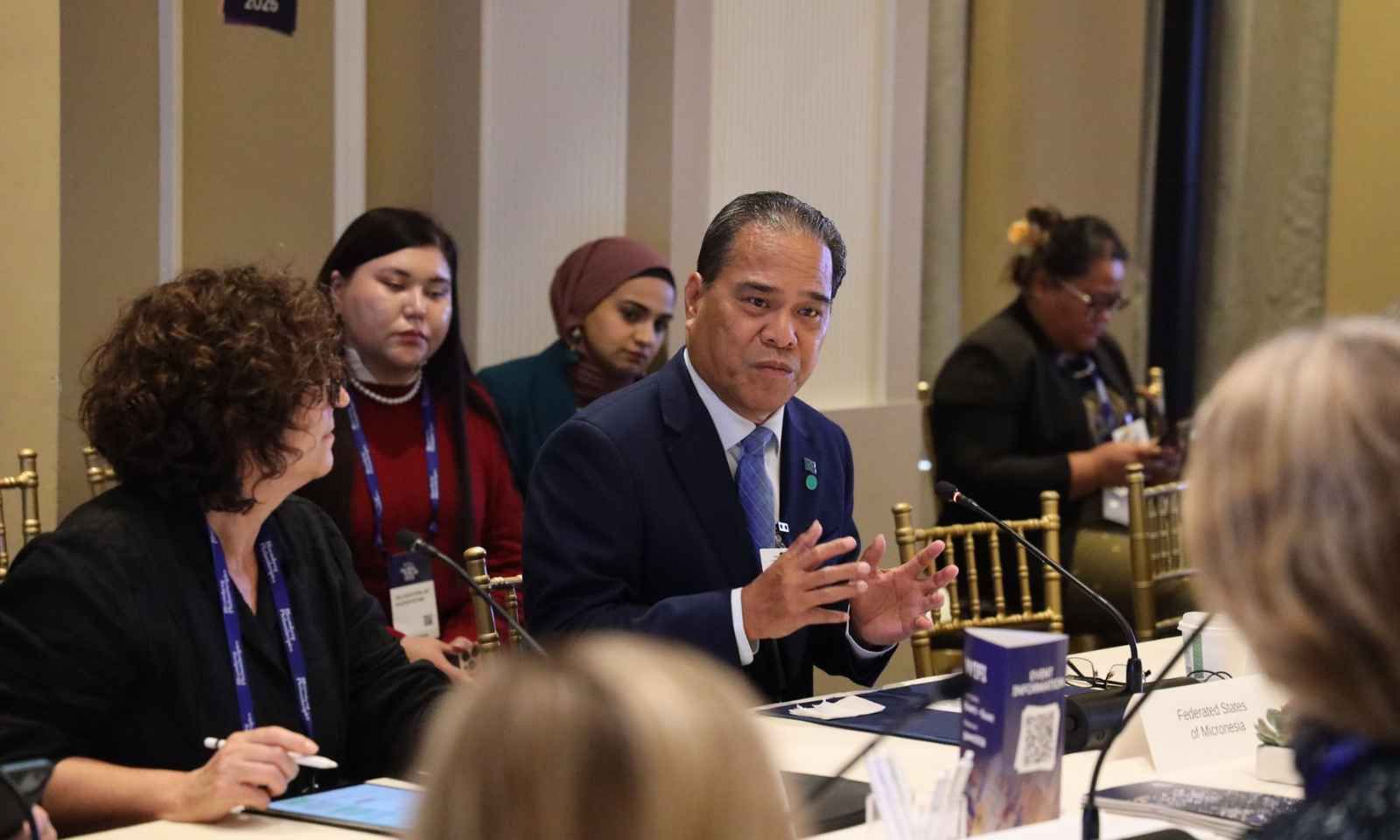
Federated States of Micronesia President Wesley Simina speaks at the High-Level Solutions Dialogue during the United Nations General Assembly. Photo/Supplied
He called methane action the “most powerful, science-based and cost-effective” step to slow global warming.
At the High Seas Treaty, Simina praised the recognition of small island states’ rights and announced the FSM’s strong consideration in creating a marine protected area, which is shared with Palau, Papua New Guinea, and Indonesia.
Tonga
Tonga’s Minister for Internal Affairs, Sinaitakala Tu’itahi, delivered the Kingdom’s national statement at the UNGA high-level meeting commemorating 30 years of the Fourth Conference on Women.
The conference produced the Beijing Declaration and Platform for Action, a global blueprint for gender equality that outlined 12 priority areas, ranging from ending violence to advancing women’s rights.
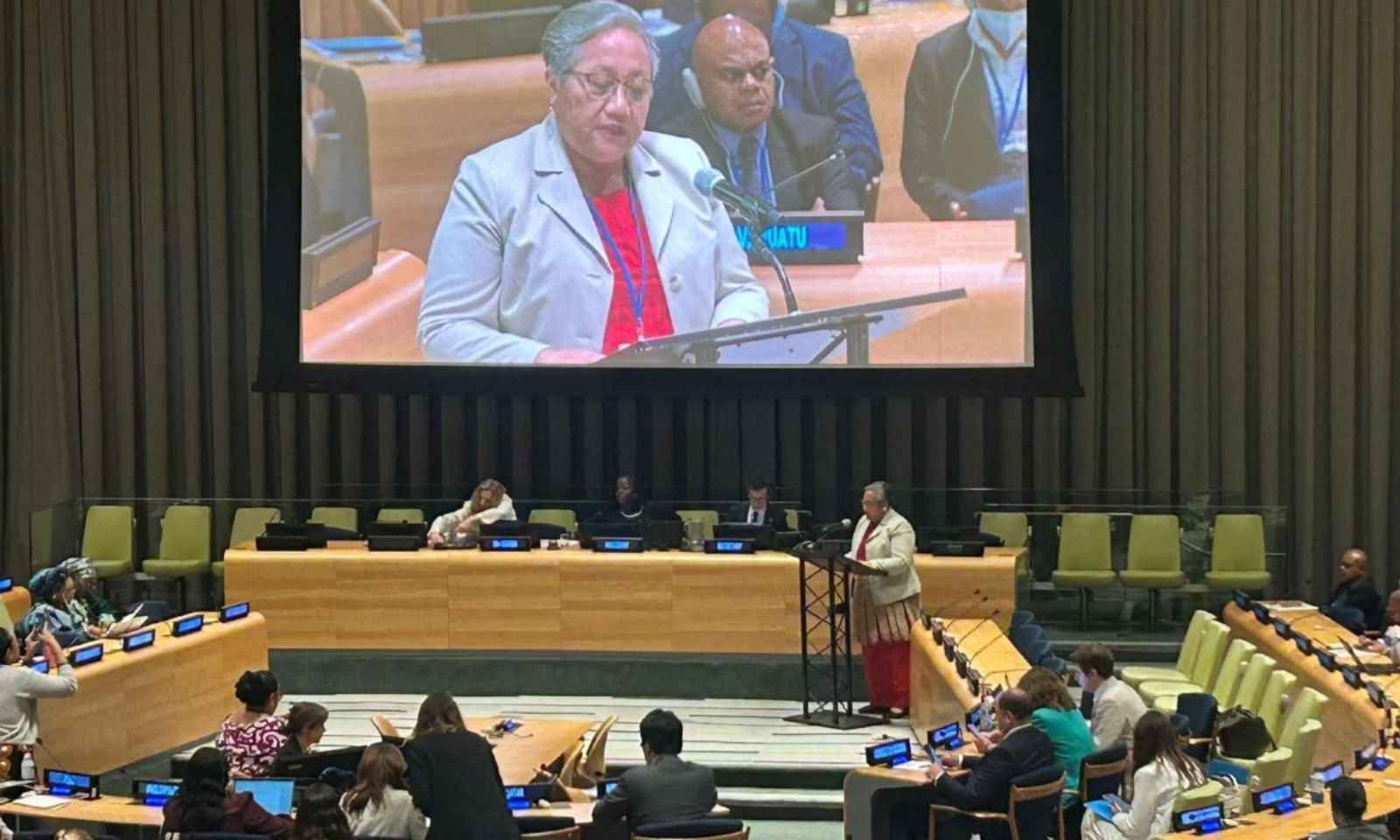
Tonga’s Minister for Internal Affairs Sinaitakala Tu’itahi delivers the Kingdom’s national statement at the UN General Assembly High-Level Meeting marking 30 years of the Beijing Platform for Action in New York. Photo/Supplied
Tu’itahi underscored Tonga’s progress towards gender equality, including the implementation of the Public Service Commission’s Sexual Harassment Policy and record-high female secondary school completion rates.
Tonga’s Prime Minister, Dr Aisake Eke, was hosted by the United States’ Deputy Secretary of State, Christopher Landau, as part of a dialogue with Pacific Islands Leaders on Tuesday (NZT).
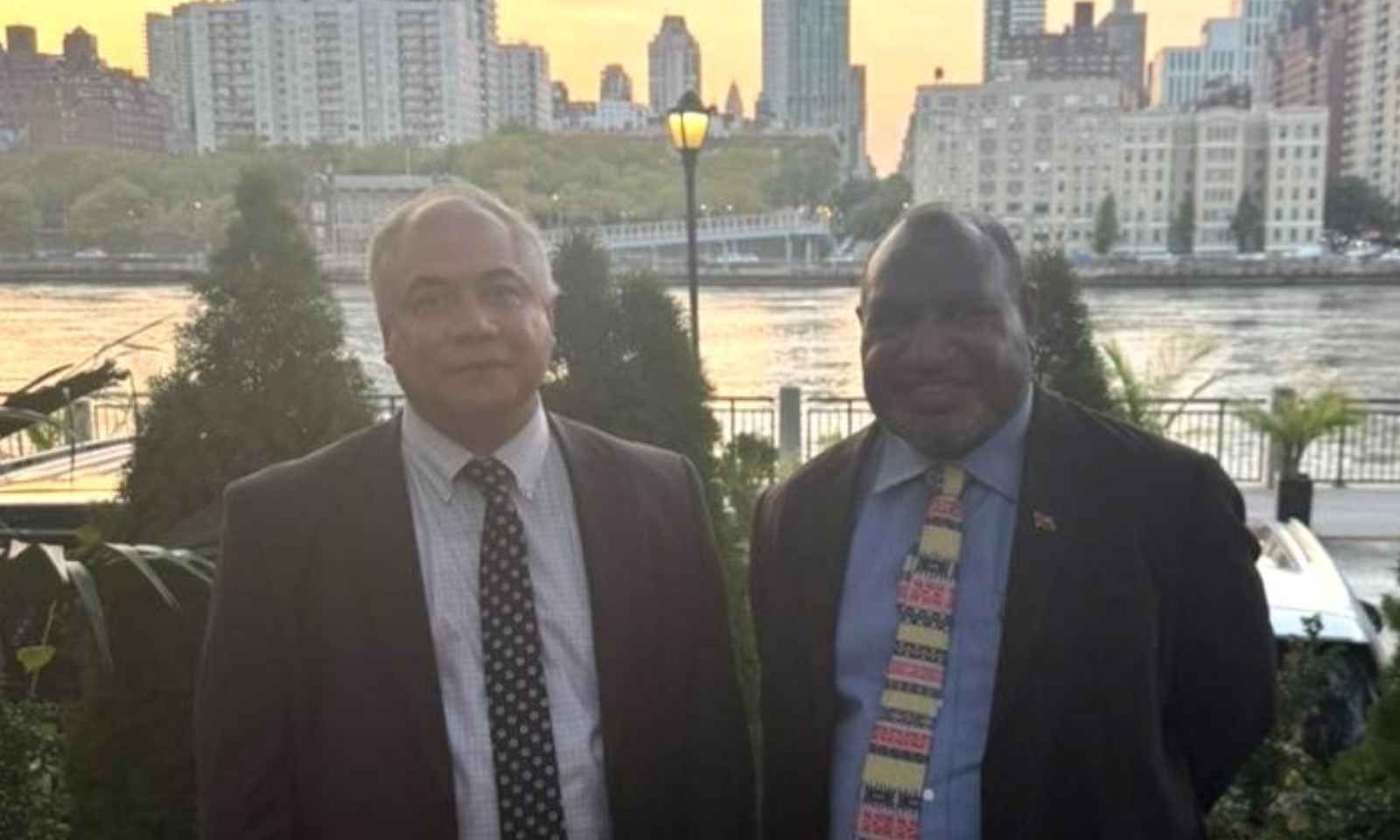
Tonga Prime Minister Dr 'Aisake Eke (left) and Prime Minister of Papua New Guinea James Marape (right). Photo/Supplied
The dialogue’s aim was to provide a platform for convening United States business leaders, government leaders, and Pacific Islands Forum (PIF) representatives to discuss opportunities, challenges, and priorities for the Pacific region.
Eke will deliver Tonga’s country statement at the General Assembly on Friday (Saturday NZT)
Tuvalu
“When storms come to my islands in Tuvalu, homes are torn apart and families seek shelter in schools and churches,” the island nation’s Prime Minister, Feleti Teo, says at a high-level side event on Scaling Up Finance and Partnerships for Responding to Loss and Damage at the UNGA.
Teo delivered a statement on the grim reality Tuvalu faces as rising sea levels threaten its survival.
He called for immediate capitalisation of the newly established Loss and Damage fund, a pool of moneyset up by the UN to help vulnerable countries recover from damage caused by climate change.
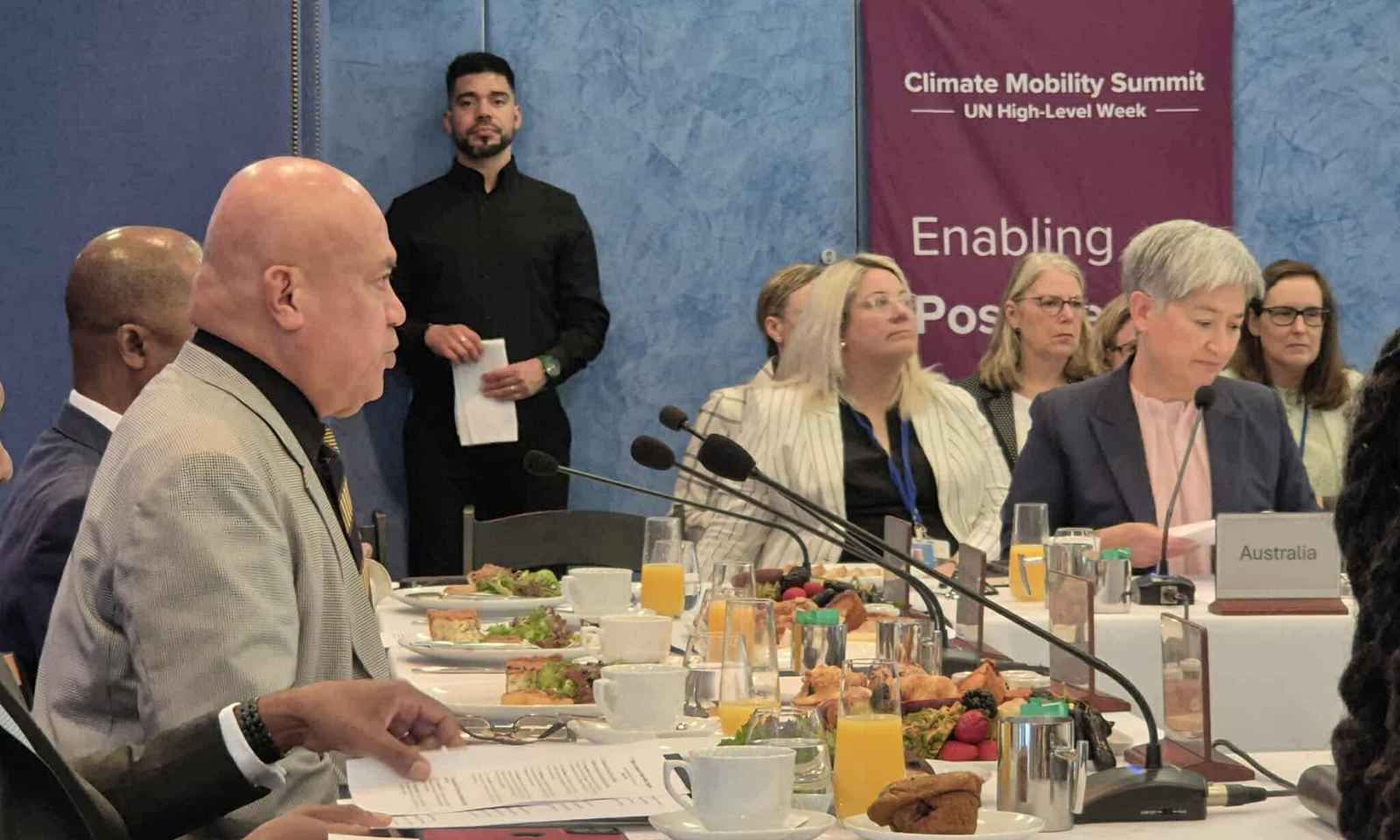
Tuvalu Prime Minister Feleti Penitala Teo delivers the keynote address at the High-Level Breakfast for Climate Mobility Champions in New York, calling for urgent global action to address climate-induced displacement and protect the rights, culture, and livelihoods of vulnerable communities. Photo/Supplied
Despite governments pledging around USD$766 million (NZ$1.3 billion) for the fund, only USD$469 million (NZ$806 million) has been contributed, and only USD$261 million (NZ$448 million) has been paid, according to Climate Home News.
Teo urged global leaders to ensure that the Fund operates effectively and reaches those most affected.
Fiji
Fiji’s Prime Minister, Sitiveni Rabuka, has announced that the island nation will increase its energy sector emissions reduction target to 36 percent.
Speaking at the UN Secretary-General’s Special High-Level event on Climate Action, Rabuka reaffirms his country’s commitment to harnessing indigenous forms of energy and phasing out fossil fuels.
While at the UNGA80, Rabuka met with French President, Emmanuel Macron.
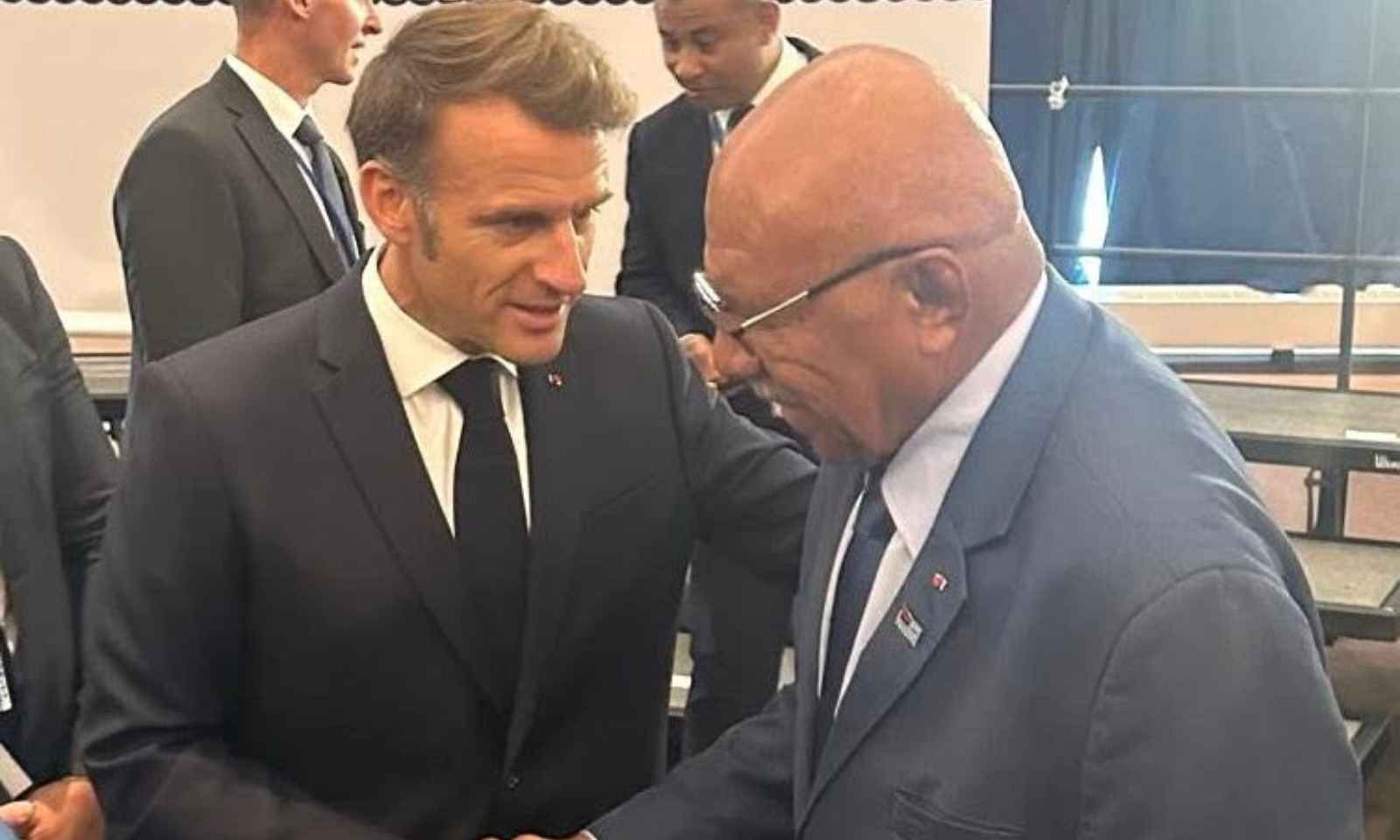
Fiji's Prime Minister Sitiveni Rabuka (right) and President of France Emmanuel Macron (left). Photo/Supplied
Although a brief encounter, the two leaders reaffirmed France’s commitment to strengthening the partnership in areas of mutual interest.
Rabuka says this year’s UNGA is significant for Fiji and the Pacific as he looks to advance his vision of the region as the OCean of PEace, a declaration which was signed by all PIF leaders in Honiara earlier this month.
The Ocean of Peace was first introduced at the 78th session of the UNGA in 2023, where Rabuka called for the region to be recognized as a zone of peace, free from geopolitical rivalry.
He is expected to deliver Fiji’s country statement on Friday (Saturday NZT).
Rabuka’s wife, Suluweti Rabuka, also took the helm in diplomatic affairs, meeting with the UN’s Assistant Secretary General for Safety and Security, Unaisi Vuniwaqa.
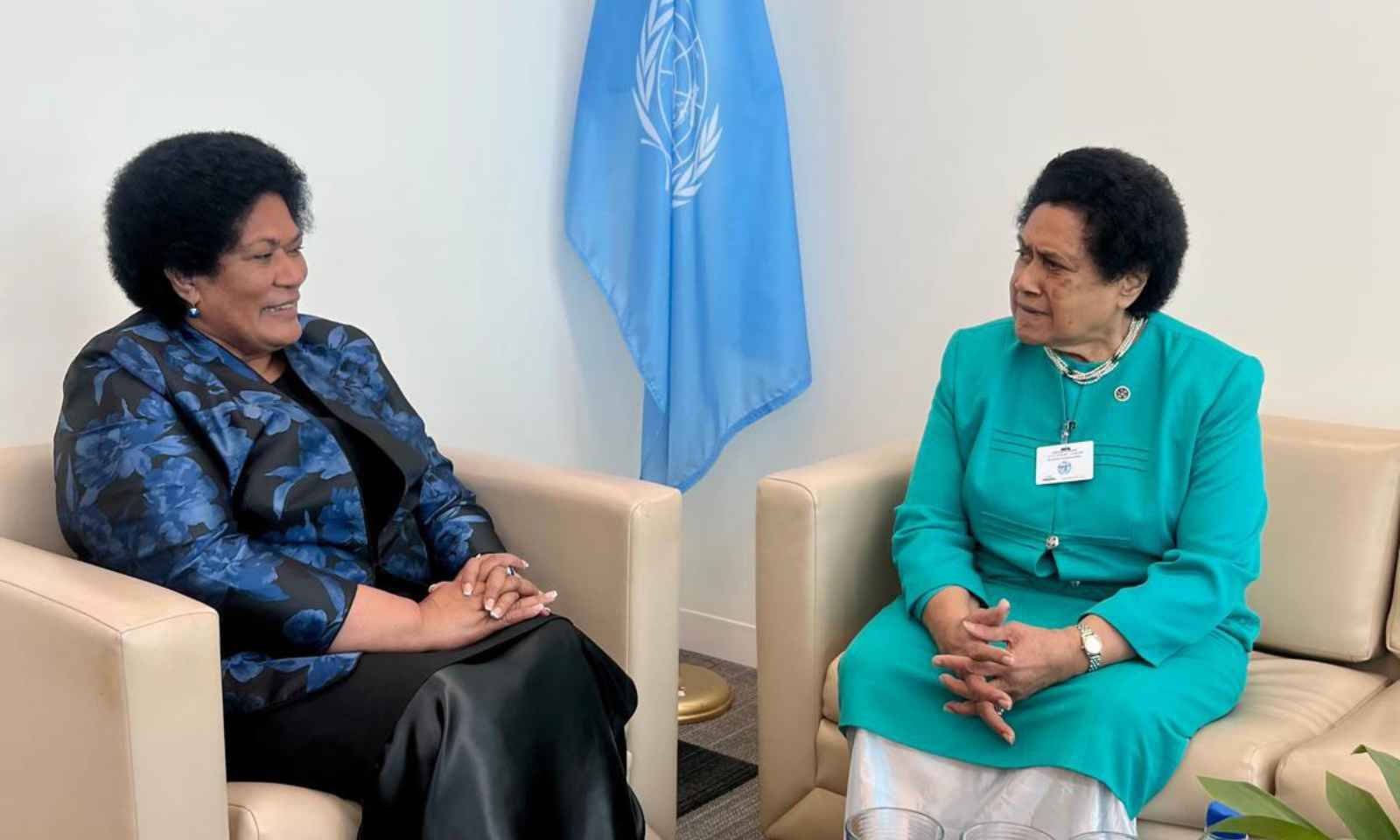
Suluweti Rabuka (right), spouse of Fiji’s Prime Minister, meets with UN Assistant Secretary-General for Safety and Security Unaisi Vuniwaqa (left) at UN Headquarters in New York to discuss Fiji’s commitment to advancing women’s leadership and gender equality. Photo/Supplied
Vuniwaqa has had an extensive career with the UN, most notably being the first woman appointed as the organisation’s police commissioner in South Sudan.
The pair discussed Fiji’s ongoing commitment to empowering women and advancing gender equality on the global stage.
New Zealand
Since taking office, New Zealand’s Prime Minister, Christopher Luxon, has yet to make an appearance at the UNGA.
Again, this year, Foreign Affairs Minister Vaovasamanaia Winston Peters takes the helm. Everyone will be closely watching as he’s set to confirm New Zealand’s stance on recognising Palestinian statehood on Friday (Saturday NZT).
Aside from the elephant in the room, Peters has kept himself busy meeting with counterparts, most notably taking part in the European and Indo-Pacific Partners 4+4.
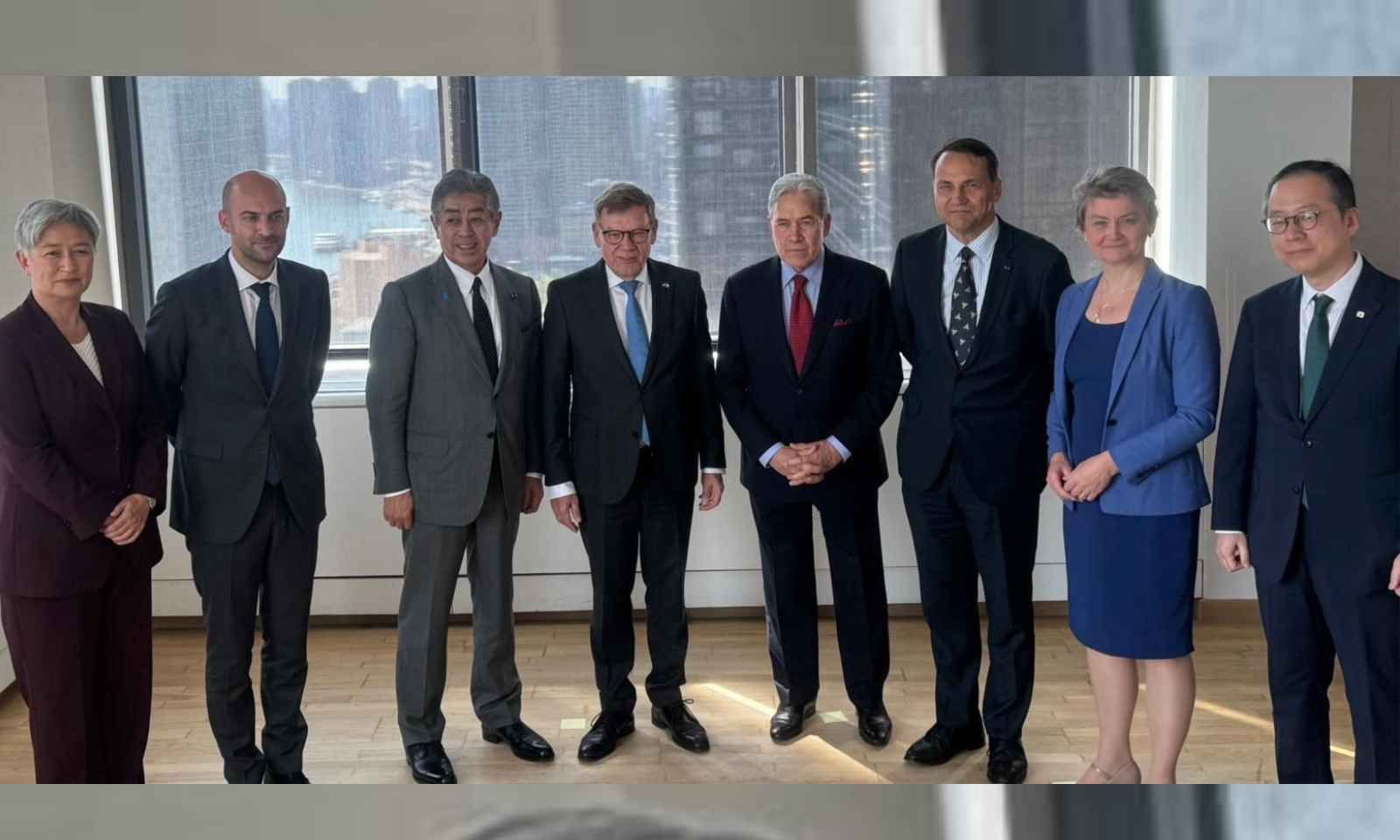
Left to right Penny Wong (Australia), Jean-Noel Barrot (France), Takeshi Iwaya (Japan), Johann Wadephul (Germany), Winston Peters (New Zealand), Radoslaw Sikorski (Poland – also Deputy Prime Minister), Yvette Cooper (UK), Kweon Ki-hwan (Republic of Korea). Photo/Supplied
This meeting comprises the foreign affairs ministers of New Zealand, Australia, France, Germany, Japan, Poland, South Korea, and the United Kingdom.
The group discussed security challenges in Europe and the Indo-Pacific, emphasizing the importance of upholding the international trade order and maintaining economic security.
Watch Vaovasamanaia Winston Peters' full interview below.
Peters was also invited to the United States President Donald Trump’s reception for those attending the UNGA High Level Week, butPeters was unable to attend due to traffic closures.
Sāmoa
New Zealand isn’t the only one without its Prime Minister; Sāmoa’s delegation is being led by its recently elected Deputy Prime Minister, Toelupe Onesemo.
This comes after Prime Minister Laauliamlemalietoa Polataivao Schmidt flew to Auckland for medical treatment just days after taking office.
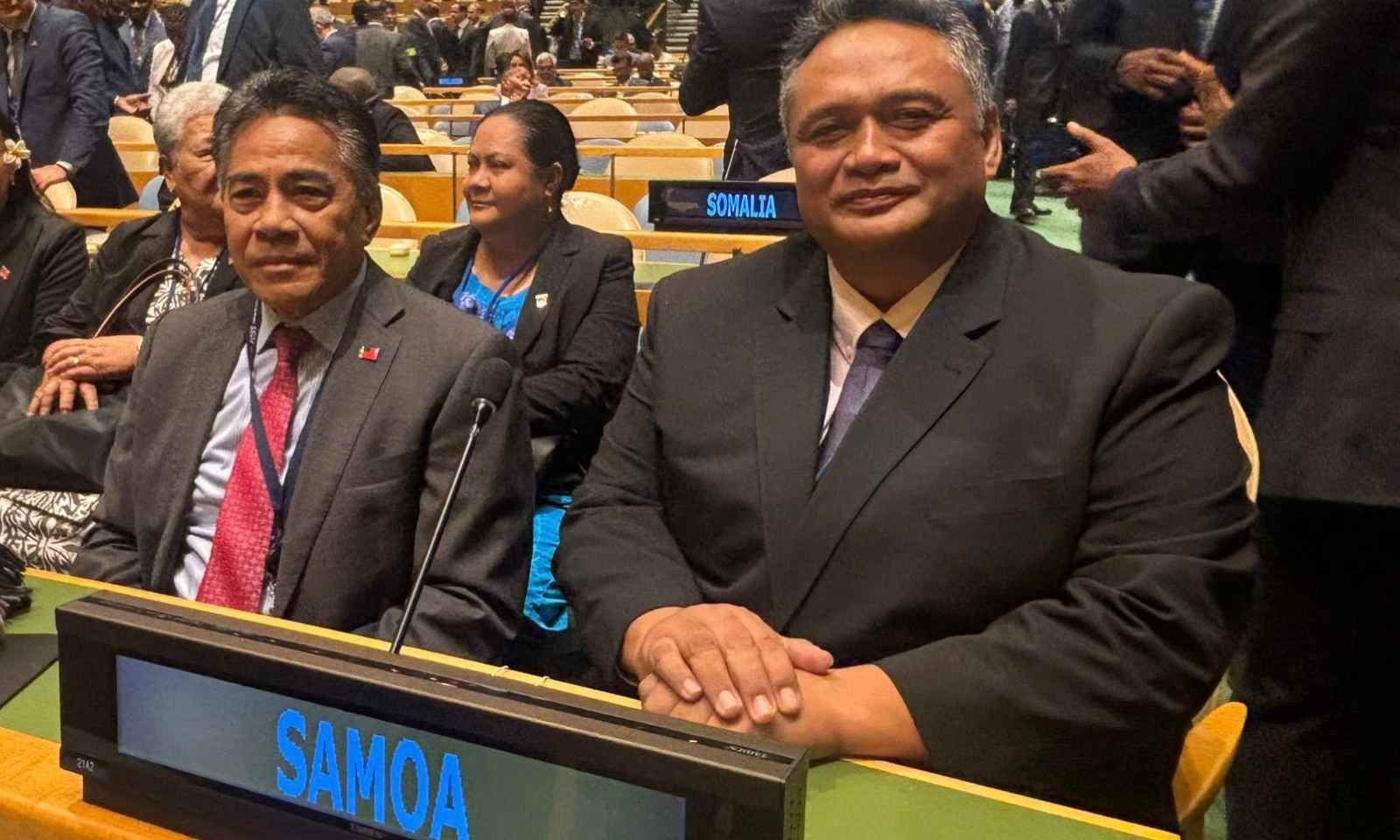
Sāmoa’s delegation to the United Nations General Assembly is led by newly elected Deputy Prime Minister Toelupe Onesemo (right), following Prime Minister Laauliamlemalietoa Polataivao Schmidt’s departure to Auckland for medical treatment. Photo/Supplied
The delegation includes the CEO of Sāmoa’s Foreign Affairs and Trade Ministry, Peseta Simi, joined by the island nation’s ambassador to the United States, Fatumanava-o-Upolu III Dr Pa'olelei Luteru.
Onesemo chaired the Commonwealth's Foreign Affairs Ministers Meeting, which saw the launch of a new Democracy Fragility Index designed to detect threats to democracy early and warn partners so crises can be prevented.